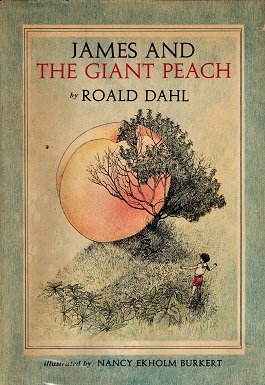Isaac Bashevis Singer
Explore the significant events and milestones in the life of Isaac Bashevis Singer, the renowned Polish-born Jewish-American writer, noted for his contributions to literature including his Nobel Prize in Literature in 1978. This timeline highlights his journey from his birth in Poland, immigration to the United States, literary career, and lasting legacy.
Birth of Isaac Bashevis Singer
Isaac Bashevis Singer was born on November 21, 1902, in the village of Leoncin near Warsaw, Poland, which was then part of the Russian Empire. Singer was born into a Jewish family; his father was a rabbi. Growing up in a religious environment heavily influenced his early life and later storytelling, as religious figures and settings would often permeate his literary works. As a child, Singer lived in a fervently religious district of Warsaw before relocating due to military conflict. This cultural and religious background was foundational to Isaac Bashevis Singer's development as one of the most profound Jewish-American authors of the 20th century.
Isaac Bashevis Singer begins his literary career
Isaac Bashevis Singer embarked on his literary career in 1925, working as a proofreader at the Yiddish literary magazine 'Literarische Bleter.' This role provided Singer with a front-row seat to the literary and cultural movements of the Yiddish-speaking world, allowing him to interact with prominent writers and thinkers. The magazine became influential in his development as an author, and Singer's interactions and observations during this period informed much of his future work. His exposure to the flourishing literary scene cemented his aspiration to become a writer and heralded the beginning of his contributions to Yiddish literature.
Immigration to the United States
In 1935, facing the growing threat of Nazism in Europe and the increasing dangers for Jews, Isaac Bashevis Singer emigrated to the United States. Initially settling in New York City, Singer joined his older brother, who had moved there previously. This relocation was a pivotal moment in Singer's life and career, marking the beginning of his transformation into a major American literary figure. Though the move was a response to political danger, it also provided Singer with new opportunities to explore different aspects of Jewish life and identity in America, which became a central theme of his later works.
Publication of 'The Family Moskat'
Published in 1943, 'The Family Moskat' was Isaac Bashevis Singer's first major novel. The book chronicles the life of a Jewish family in Poland from the late 19th century until World War II. It marked Singer's arrival as a significant new voice in literature, gaining notable attention for its detailed portrayal of Jewish life and its exploration of themes such as tradition, modernity, and survival. The novel also established Singer's reputation as a chronicler of Jewish life before the Holocaust, blending realism with the mystical and the supernatural, characteristic of his later works.
Publication of 'Gimpel the Fool' in English
In 1953, 'Gimpel the Fool,' one of Isaac Bashevis Singer's most renowned short stories, was translated into English by Saul Bellow and published in 'Partisan Review.' The story brought Singer widespread acclaim in the English-speaking literary world. 'Gimpel the Fool' is a narrative about a naive but ultimately wise baker living in a Jewish shtetl. The tale's folklore roots combined with its philosophical depth captivated readers and critics alike. The successful translation marked an important moment in Singer's career, expanding his reader base significantly beyond the Yiddish-speaking communities.
Publication of 'The Slave'
'The Slave' is a novel by Isaac Bashevis Singer, published in 1962, which tells the story of Jacob, a Jewish slave in 17th-century Poland, who falls in love with a gentile peasant girl named Wanda. The narrative delves into themes such as the clash between faith and love, personal sacrifice, and the social restrictions imposed by religious and societal norms. Through this book, Singer continues his exploration of the human condition, the conflicts between duty and desire, and the role of faith in personal and community life, showcasing his deep understanding of human nature.
Isaac Bashevis Singer wins the Nobel Prize in Literature
On October 10, 1978, Isaac Bashevis Singer was awarded the Nobel Prize in Literature. The Nobel Committee recognized him not only for his outstanding storytelling talent and character creation but also for his profound exploration of the human condition through his vivid narratives. Writer and humanist, Singer was the first—and is still to this day the only—Yiddish author to be awarded this prestigious prize. His receipt of the Nobel Prize elevated his global literary standing and emphasized the universal themes of his work, including the supernatural and ethical dilemmas.
Publication of 'The Penitent'
Isaac Bashevis Singer's novel, 'The Penitent,' was published in 1981. This work investigates themes of faith, redemption, and identity crisis as it tells the story of a Jew who flees the Holocaust only to struggle with the apparent meaninglessness of modern existence. The protagonist's journey back to the tenets of Judaism serves as a deep exploration of spiritual renewal and personal transformation. Singer, through this book, continues to explore his frequently visited themes of religious dedication and philosophical inquiry, alongside the cultural struggles of Jewish identity.
Publication of 'Scum'
Isaac Bashevis Singer's novel 'Scum' was published in 1986. This novel is set in early 20th-century Warsaw and follows Max Barabander, a prosperous businessman who returns to his native Warsaw after many years, in the hope of rekindling his lost youth. Through its narrative, 'Scum' explores themes of desire, morality, and redemption. The novel reflects Singer's preoccupation with Judaism, the tensions between tradition and modern life, and the quest for meaning, portrayed with his signature use of fantastical and philosophical elements, which were central to his storytelling style.
Death of Isaac Bashevis Singer
Isaac Bashevis Singer passed away on July 24, 1991, in Surfside, Florida, USA. He left behind a rich legacy through his vast body of work, which includes numerous novels, short stories, and essays primarily written in Yiddish. Singer's writing, characterized by its exploration of Jewish folklore, religion, and existential themes, has had a lasting influence on both Jewish and world literature. His ability to fuse traditional storytelling with modern existential concerns established him as a major literary figure of the 20th century.
Frequently asked questions about Isaac Bashevis Singer
Discover commonly asked questions regarding Isaac Bashevis Singer. If there are any questions we may have overlooked, please let us know.
When was Isaac Bashevis Singer born?
What is Isaac Bashevis Singer best known for?
When did Isaac Bashevis Singer win the Nobel Prize in Literature?
When did Isaac Bashevis Singer pass away, and where?
Related timelines
More timelines connected to Isaac Bashevis Singer







